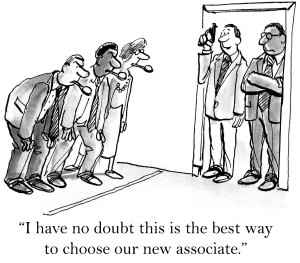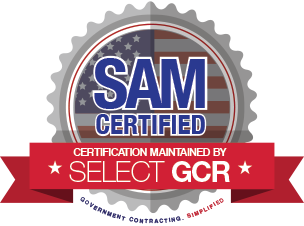Giving an Effective Technical Interview: What You Need to Know
 When it comes to finding high-quality IT talent, businesses are scrambling more than ever to find the best candidates. Why? This is due to the fact that unemployment in this industry is lower than almost any other and fewer college graduates are choosing this path, resulting in a huge reduction in the talent pool. However, the growth in this industry has done everything but slowed down – in fact it is growing faster than ever, meaning that finding the talent you need for your business is more important than ever. This means that recruiters and interviewers must be at the top of their game in order to find quality candidates for open positions.
When it comes to finding high-quality IT talent, businesses are scrambling more than ever to find the best candidates. Why? This is due to the fact that unemployment in this industry is lower than almost any other and fewer college graduates are choosing this path, resulting in a huge reduction in the talent pool. However, the growth in this industry has done everything but slowed down – in fact it is growing faster than ever, meaning that finding the talent you need for your business is more important than ever. This means that recruiters and interviewers must be at the top of their game in order to find quality candidates for open positions.
Planning, consideration and superior communication savvy are all essential to ensure a successful interview. No matter the position being interviewed for, some best practices will help ensure the results you want.
Don’t Forget the Small Talk
Before an interview begins, there are bound to be a few minutes to engage in some small talk. You should jump on this opportunity. It is during these conversations where you will learn inside information that you may not find out from traditional interview questions. Ask things such as if they live nearby, about their weekend or anything to start a casual conversation. This not only helps to provide a positive, welcoming experience for the candidate, but will also provide you with additional insight and reduce the tensions that both parties may be feeling.
Maintain Consistency
Chances are you will be interviewing several candidates the same day, or in the same week. It may seem repetitive to ask the same question again and again; however, you should avoid switching the questions too much, since having different candidates answer the same questions will keep them on an even playing field when you evaluate the individuals later.
Use Behavioral Interview Questions
When you ask behavioral interview questions, you will have the best tool to determine how a person will perform at your business in a specific position. These types of questions will force the person to site specific examples of past work experiences and how they may be related to the position they are interviewing for. Effective behavioral interview questions include: “Have you made a mistake? How did you handle it?” One of two of these questions should be included. Behavioral questions will give you much more insight to an experienced candidate’s skillset. Leave the text book type questions to the recent college grads!
Don’t Forget to Sell
Remember, candidates are interviewing you just as much as you are them. This is an incredibly tough market for hiring in technology, the current unemployment rate for developers is less than 3%. What will help persuade a currently happily employed developer? The top three factors influencing interest are 1) flexible hours/telecommuting, 2) opportunity to make an impact 3) challenging work/new tech. Also, never underestimate the power of culture and developing a clear answer to “what’s in it for me?”. Don’t forget the fun perks! Companies are getting very creative in this area, following are some great ideas. If you are not already implementing a few of these you are well behind your competitors.
- Free Lunch Mondays
- Happy Hour Fridays
- Dog friendly offices
- Birthdays off
- Gym Memberships
- Game room
- Child or Doggie Daycare reimbursements
A little goes a long way in this area, anything you can do to help people feel a sense of comradery and have some fun with each other will produce a much happier, cohesive team environment. I’ve been told time and time again by active candidates that they just want to look forward to going to work and they want to feel like they are appreciated. Potential candidates appreciate hearing about the less conventional benefits of joining your team and these little perks could be the deciding factor when comparing so many different opportunities.
Always Ask if they have Questions
This needs to be a staple question in any interview that is given: “Do you have any questions for me?” This will clear up things for them and provide insight to what they are thinking. If they ask about salary right away, they may only be concerned about what they are getting paid, rather than the job as a whole.
After the interview you should let them know what will happen next. This will make the candidate feel informed and they will know what to expect going forward. It also allows for a nice transition to the end of the interview. When interviews end abruptly it leaves an awkward impression with the candidates.



